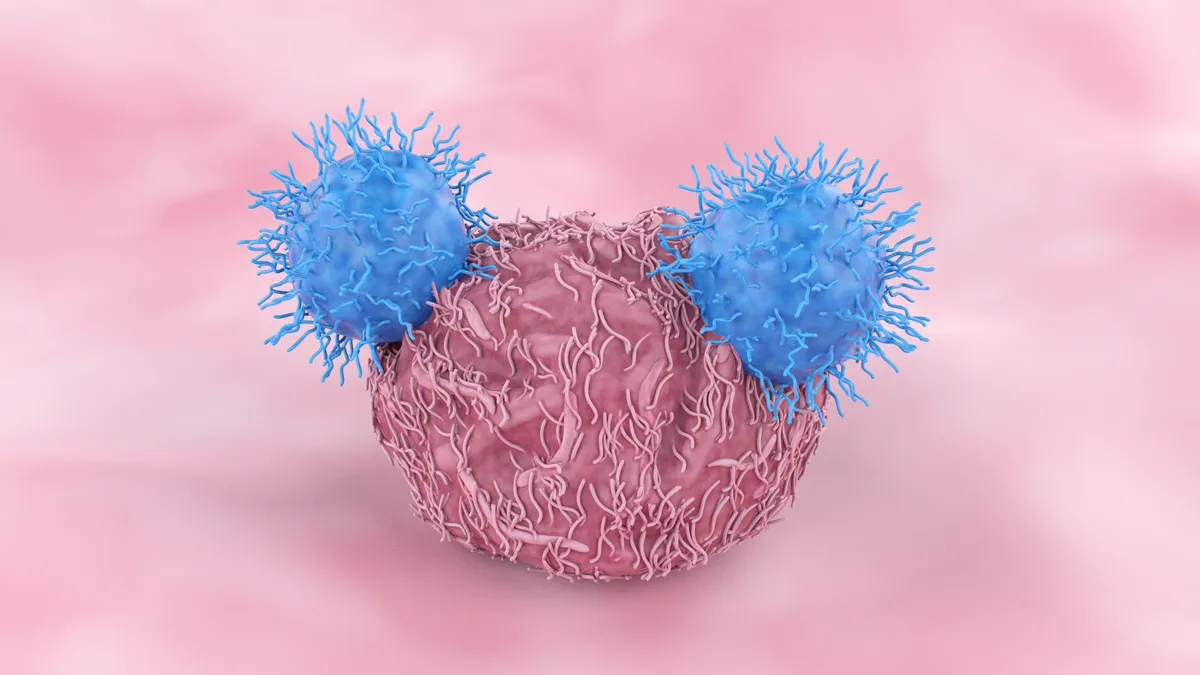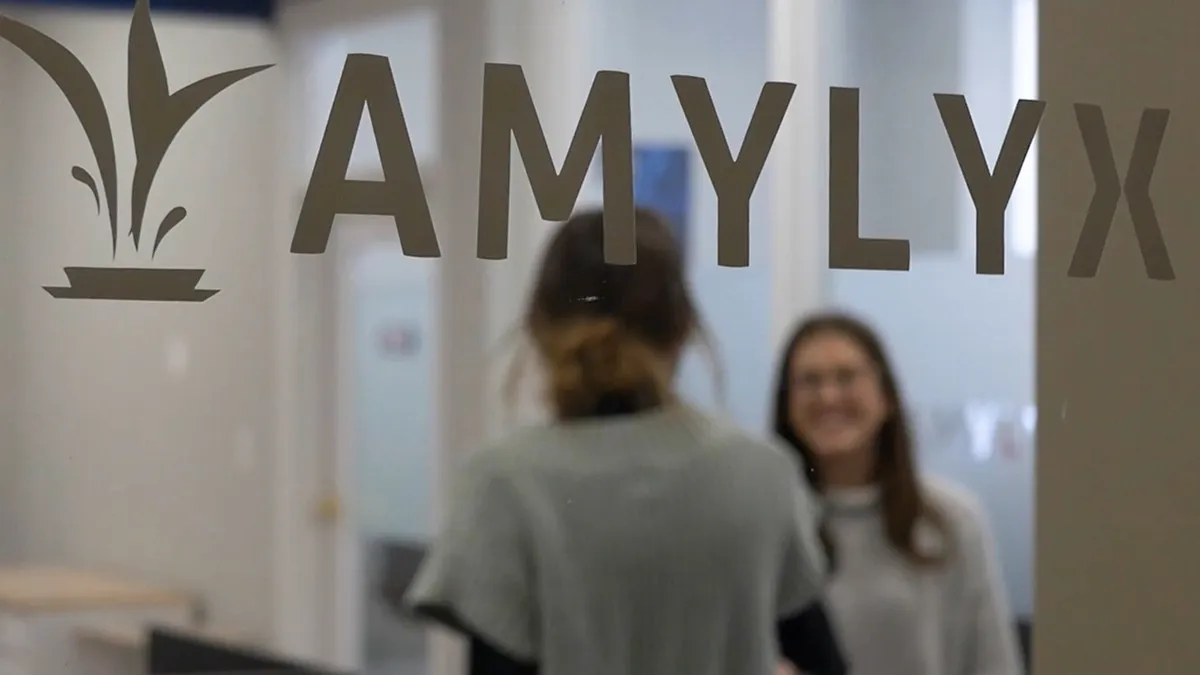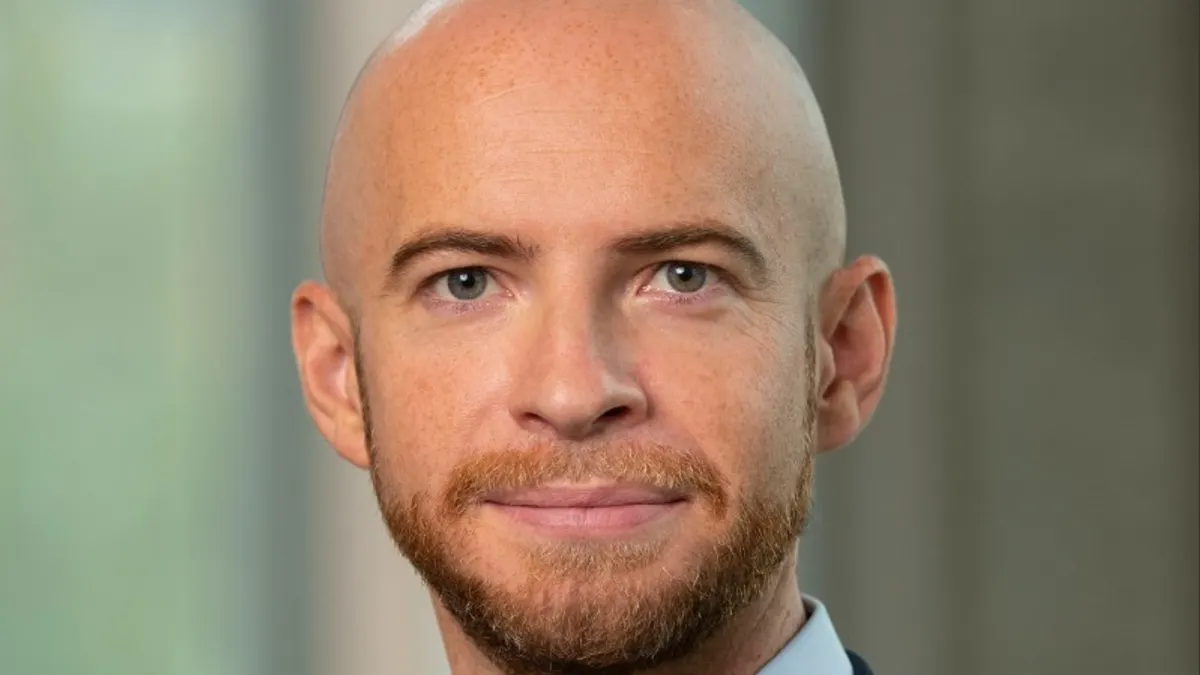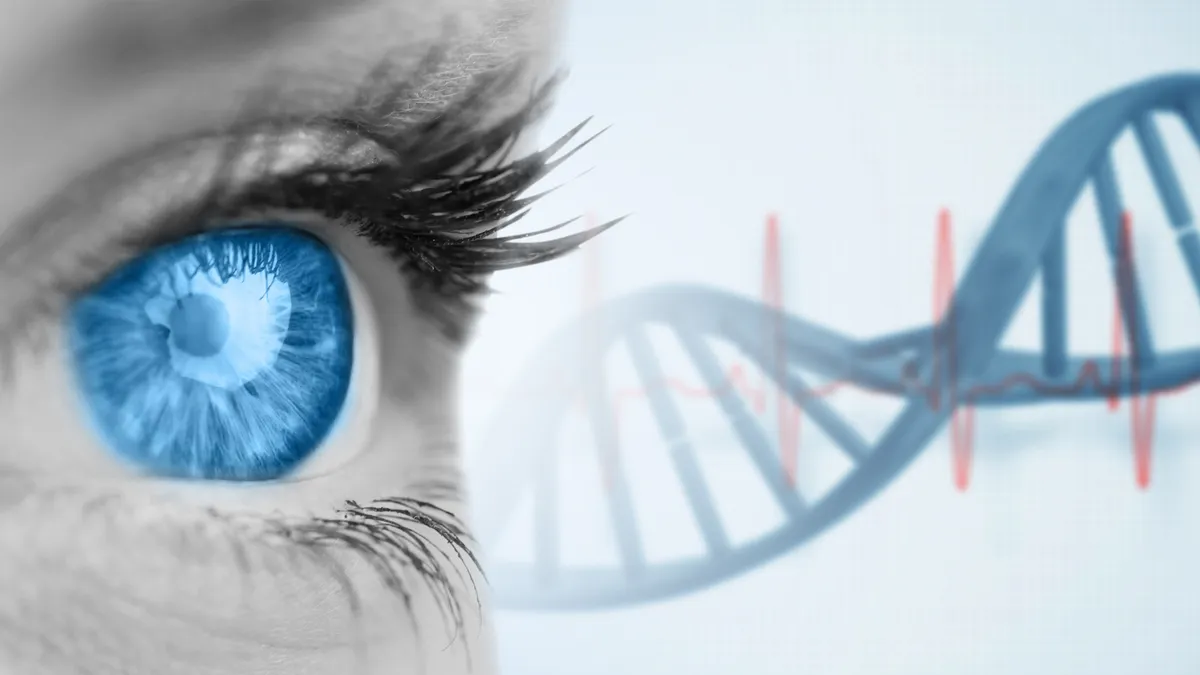CAR-T cell therapy makers are on their way to finding a footing in the autoimmune disease space, and companies like Kyverna Therapeutics are targeting rare disorders with limited treatment options.
After winning several approvals in oncology, an arms race is underway to bring the technology to the autoimmune diseases with several companies, including CRISPR Therapeutics and Novartis, developing therapies for lupus. While CAR-T comes with several challenges in cancer, researchers are hopeful that autoimmune patients will fare better with fewer side effects.
“CAR-T therapy as a scientific approach is completely the right way to look at autoimmune disease, to just eliminate those B cells that are making antibodies against you and causing all these autoimmune diseases,” said Dr. Sham Dholakia, business unit head of rare disease at Kyverna. “And it's the perfect target by using your own cells to get rid of the problem.”
But Kyverna is venturing into a more obscure autoimmune disease — stiff person syndrome — as well. The disorder causes muscles to lock up and become stiff, as well as painful spasms and other symptoms, and is extremely rare, affecting around 5,000 people in the U.S. There are currently no therapies that target the underlying disease, and only treatments for symptoms. The most commonly used options include painkillers, anti-inflammatories, muscle relaxers and intravenous immunoglobulin, according to Dholakia, who said more options for autoimmune diseases are needed.
“If you take Infliximab for long enough, or if you're taking kinase inhibitors for long enough, if you read the labels of all of these drugs that are approved for inflammation as a result of autoimmune disease, their side effects are pretty terrible,” he said.
The disease gained media attention after popular singer Celine Dion announced her diagnosis in 2022. More recently, Dion shared how the disease impacts her life in a documentary released on Amazon Prime in June.
Kyverna is planning a phase 2 trial of its CAR-T cell therapy KYV-101 to treat stiff person syndrome, which was given fast track and regenerative medicine advanced therapy designations from the FDA. All told, KYV-101, Kyverna’s lead candidate, is being tested across eight designations, including multiple sclerosis and myasthenia gravis. Kyverna aims to enroll 20 to 30 patients in the trial for stiff person syndrome, according to Dholakia.
"Right now, there isn't any CAR-T therapy approved for any autoimmune disease, and that's across any company around the world. So we want to set a precedent [that] this is possible.

Dr. Sham Dholakia
Business unit head of rare disease, Kyverna
We caught up with Dholakia to dig deeper into the autoimmune CAR-T pipeline and what the company has learned from the oncology space.
This interview has been edited for brevity and style.
PHARMAVOICE: Why is Kyverna targeting stiff person syndrome given its very small patient population?
DR. SHAM DHOLAKIA: A lot of CAR-T therapy has been developed on the wings of oncology, but what we found is that with that approach, there are a lot of side effects. Patients' immune systems [are] very fatigued once you've had therapy, once you've had cancer — the normal cells that you have in your body don't work so well and they're exhausted. When you now look at the autoimmune patient overall, apart from the era targeting your own cells, the rest of the immune system is OK. And so this creates an opportunity to get all of the cells that you need at much lower volumes, but also much healthier. We can now use that same sort of immune reset approach to create significant impact.
A lot of the diseases currently are treated with drugs that are looking at symptoms or symptomatic care, trying to reduce pain, trying to improve ability to move muscles, or trying to reduce inflammation. But the underlying problem is the antibody that's being made by your body [works] against your body, and no one's really addressing that. We feel this is an overdue approach.
Right now, there isn't any CAR-T therapy approved for any autoimmune disease, and that's across any company around the world. So we want to set a precedent [that] this is possible.
Commercialization plans are considered much earlier in the process these days, including in clinical trial design. How are you thinking about commercialization at this stage?
The great thing is that we have a playbook from oncology. There are several approved CAR-T therapies in oncology, [which gives] a sense of cost effectiveness [and] payer strategies. It creates a landscape for us to curate and optimize.
We also think [there are] some similarities and synergies to what we're doing in terms of the approach of resetting an immune system and creating significant improvement for a patient that would otherwise be chronically ill. Those thoughts are all working in parallel, and being embedded into the protocol to make sure we're collecting data that's going to support not only the approval of KYV-101, but make sure it’s accessible to patients.
What are some of the lessons from the oncology playbook you’re using in drug development?
The oncology patient is in a completely different starting position in terms of what they're dealing with, and the amount of side effects that people have seen on oncology is different, and the outcomes for patients are also different. Overall, compared to oncology patients, [our patients are] much healthier, apart from that autoimmune disease we're targeting. That gives us a massive ability to create a lot of benefit for patients and [minimize] adverse outcomes.
All CAR-T therapy patients are being surveyed for the longer term. What's really important here is that we've done a lot of work understanding the right dose to get a benefit without giving too much [while not] giving too little and then having to re-dose. That fine tuning is really important, because that now creates a one-and-done approach.
What’s the impact of Celine Dion’s public diagnosis?
Overall, it's a good thing for patients. It's a very heterogeneous disease. A lot of patients have been hanging on the wayside, waiting for a formal diagnosis and are not sure how to go for help with the right medical providers. [Dion] has given a lot of visibility to the disease, which is a good thing.
What’s the future of CAR-Ts in the autoimmune space?
We used to treat rheumatoid arthritis with gold injections, and now there are 56 drugs approved for rheumatoid arthritis. It's still a multi-billion dollar opportunity because people are having progressive disease, because they keep failing all of these biologics. The science is finally good enough that diseases like that and now other autoimmune diseases, where the primary driver is this error in antibody production, can be reset. I think that's an amazing opportunity. It's going to change medicine forever.
In the longer arc, we'd love to be able to say that the incidence and prevalence of these diseases are not going to be as bad as they are today because [CAR-T] therapies are going to make a significant dent and help a lot of people.



















